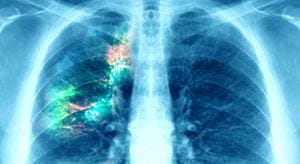 Why do so many cancers come back after aggressive medical treatments? Could radiation and chemotherapy be targeting the wrong cells? McGowan Institute for Regenerative Medicine cancer researchers have found that some cancer cells are churned out by their own diabolical kind of stem cells.
Why do so many cancers come back after aggressive medical treatments? Could radiation and chemotherapy be targeting the wrong cells? McGowan Institute for Regenerative Medicine cancer researchers have found that some cancer cells are churned out by their own diabolical kind of stem cells.
Modern chemotherapy is based on the idea that you can kill cancer by attacking rapidly dividing cells that are cancer's hallmark. But stem cells don't divide rapidly. They slowly spin off new generations of cells, and these are the fast reproducers. By killing the progeny of stem cells, chemotherapy may be destroying the bulk of the tumor while leaving the stem cells relatively unharmed — and still churning out tumor-building descendants. The following are select examples of projects within the McGowan Institute that are directed toward cancer-related treatments:
McGowan Institute for Regenerative Medicine affiliated faculty members Albert Donnenberg, PhD, and Vera Donnenberg, PhD, are on a quest to find, and eventually kill or manipulate, dormant cancer stem cells. Research by the Donnenbergs has led to the identification and characterization of specific cancer stem cells as well as the development of new flow cytometry-based tools and techniques.
Surgery, a crucial therapeutic modality in the treatment of solid tumors, can induce sterile inflammatory processes which can result in metastatic progression. Liver ischemia and reperfusion (I/R) injury has been shown to foster the liver’s capture of circulating cancer cells and accelerate metastatic growth. Efforts to reduce these negative consequences have not been thoroughly investigated.
Research in the laboratory of McGowan Institute faculty member Eric Lagasse, PharmD, PhD, could lead to new insights into the development and treatment of esophageal cancer and the precancerous condition known as Barrett’s esophagus. In preclinical studies, Dr. Lagasse and his team found a small population of cells that divide more slowly, are more primitive, can generate specialized or differentiated cells, and have the ability to self-renew, which is a defining trait of stem cells. This discovery could lead to new models to study esophageal disease.
Learn more about the discovery of stem cells in the esophagus.
SkinJect, Inc., a Pittsburgh-based company, licensed with the University of Pittsburgh its novel, minimally invasive treatment for common forms of non-melanoma skin cancer, basal cell and squamous cell carcinoma. Two million new cases of basal cell cancer are reported each year in the United States, and more than half of all patients suffer a recurrence. The new product under development could dramatically change the way these skin cancers are treated. The SkinJect™ patch is a thumb-sized array of dissolvable microneedles that will deliver a chemotherapeutic agent to kill an existing skin cancer. The SkinJect patch will be applied once a week, for 3 weeks, in the doctor’s office. The microneedles, less than a millimeter long, dissolve within 15 minutes of application. McGowan Institute affiliated faculty member Louis D. Falo, Jr., MD, PhD, is a co-inventor of the microneedle patch.
Learn more about the SkinJect™ patch.
In support of post-cancer treatment concerns, stem cells derived from a patient's own fat have been studied as a resource in breast reconstruction after cancer surgery by McGowan Institute faculty member J. Peter Rubin, MD, FACS.
Learn more about fat in breast reconstruction.
McGowan Institute for Regenerative Medicine affiliated faculty members Louis D. Falo, Jr., MD, PhD, and Valerian Kagan, PhD, DSc, have demonstrated that a newly developed topical therapy applied before or after radiation exposure prevents skin damage in both animal and human models.
Learn more about topical therapy for radiation-induced skin damage.
About UPMC
UPMC is a world-renowned, nonprofit health care provider and insurer committed to delivering exceptional, people-centered care and community services. Headquartered in Pittsburgh and affiliated with the University of Pittsburgh Schools of the Health Sciences, UPMC is shaping the future of health through clinical and technological innovation, research, and education. Dedicated to advancing the well-being of our diverse communities, we provide nearly $2 billion annually in community benefits, more than any other health system in Pennsylvania. Our 100,000 employees — including more than 5,000 physicians — care for patients across more than 40 hospitals and 800 outpatient sites in Pennsylvania, New York, and Maryland, as well as overseas. UPMC Insurance Services covers more than 4 million members, providing affordable, high-quality, value-based care. To learn more, visit UPMC.com.
















 Why do so many cancers come back after aggressive medical treatments? Could radiation and chemotherapy be targeting the wrong cells? McGowan Institute for Regenerative Medicine cancer researchers have found that some cancer cells are churned out by their own diabolical kind of stem cells.
Why do so many cancers come back after aggressive medical treatments? Could radiation and chemotherapy be targeting the wrong cells? McGowan Institute for Regenerative Medicine cancer researchers have found that some cancer cells are churned out by their own diabolical kind of stem cells.